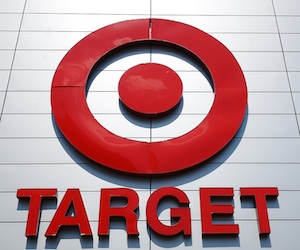Shortly after confirming in an interview that hackers managed to install malware on its point-of-sale systems, Target Chairman and CEO Gregg Steinhafel announced that the retail giant would put $5 million toward a multi-year campaign to help educate the public on the dangers of online scams.
In an open letter published in newspapers across the country on Monday, Steinhafel said that a group of cybersecurity and consumer protection organizations will launch a campaign to educate consumers about cybersecurity and the dangers of phishing scams.
According to Steinhafel, Target has teamed up with the National Cyber-Forensics and Training Alliance (NCFTA), National Cyber Security Alliance (NCSA) and Better Business Bureau, Inc. (BBB), to advance public education around cybersecurity.

“The National Cyber Security Alliance applauds Target’s substantial commitment to support education and awareness to make the Internet safer, more secure and trusted,” says Michael Kaiser, executive director of the National Cyber Security Alliance. “We are excited to work in collaboration with Target and our nonprofit colleagues to create and implement a far reaching campaign to get quality cybersecurity information to internet users. We believe that cybersecurity and online safety can only be achieved through sharing the responsibility and working together. This effort exemplifies that approach.”
The group will convene for the first time this week in Washington D.C., and more details will be shared following that meeting, the company said.
Target is working with the United States Secret Service and the Department of Justice to the massive data breach that exposed what the company said could now be up to 110 million customers.
On Jan. 10, Target said it has not yet been able estimate the costs, or a range of costs, related to the data breach. However, the company said expenses related to the massive breach may include liabilities to payment card networks for reimbursements of credit card fraud and card reissuance costs, liabilities related to REDcard fraud and card re-issuance, liabilities from civil litigation, governmental investigations and enforcement proceedings, expenses for legal, investigative and consulting fees, and incremental expenses and capital investments for remediation activities.
“These costs may have a material adverse effect on Target’s results of operations in fourth quarter 2013 and/or future periods,” the company said.
Related: Target Confirms Point-of-Sale Malware Was Used in Attack
Related: Experts Debate How Hackers Stole 40 Million Card Numbers from Target
Related: Exclusive: New Malware Targeting POS Systems, ATMs Hits Major US Banks















